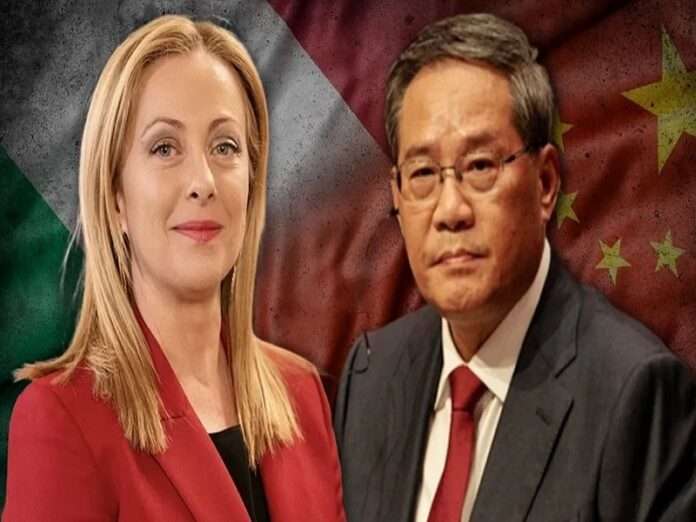Italy’s Corriere della Sera reported that Prime Minister Giorgia Meloni informed Chinese Premier Li Qiang during their meeting at last weekend’s G20 Summit in Delhi that her country won’t renew its Belt & Road Initiative (BRI) agreement when it expires next spring. This shouldn’t have surprised anyone since Rome had been sending related signals since spring, but it’s still disappointing for those who support multipolarity. Nevertheless, it could also be a lot worse.
What’s important to pay attention to is Italy’s insistence that this is due to economic reasons and not connected to any speculative pressure put upon it by the US, which successfully reasserted its previously declining hegemony over the EU in the over 18 months since the start of Russia’s special operation. That country’s new leadership has gone out of its way to emphasize that it still wants to retain cordial and mutually beneficial ties with China, ergo why it’s reportedly planning to revitalize a partnership pact.
Even so, defecting from BRI will still deal a blow to bilateral relations, especially since Italy was the only G7 country to join that initiative. It’s therefore understandable that China might feel bitter about this. That move could also prompt more speculation that the global financial system is bifurcating between the US-led G7 and what some perceive to be Chinese-led BRICS. In that scenario, states like Italy would become objects of competition between the superpowers with attendant limits to their sovereignty.
As it turned out, however, last weekend’s G20 Summit allayed the abovementioned fears after unexpectedly strengthening multipolar processes. Prior to the event, esteemed experts such as Russia’s Fyodor Lukyankov – who’s widely considered by many to be one of that country’s top policy influencers – predicted that “The glory years of the G20 are over”. That was a premature eulogy since Foreign Minister Sergey Lavrov later praised the G20 for its many successes in his press conference.
TASS’ headlines convey why he was so elated about its outcome:
* “G20 summit in New Delhi represents breakthrough — Lavrov”
* “West needs to comprehend results of G20 and position of developing countries — Lavrov”
* “G20 summit success for all G20 countries, the group undergoing internal reform — Lavrov”
* “Results of G20 summit to greatly boost IMF, WTO reforms — Lavrov”
* “Western attempts to focus G20 summit agenda on Ukraine failed — Lavrov”
All of this is connected with the G20 New Delhi Leaders’ Declaration.
Indian diplomats proved their world-class renown by getting the US-led West’s Golden Billion, the Sino–Russo Entente, and the Global South to agree on its wording after most thought this to be an impossible feat. This significantly included efforts to reform the global financial architecture, which shows that neither of those three de facto blocs for lack of a better description want to throw away everything that’s been achieved since World War II and especially after the end of the Old Cold War.
Rather, what’s happening is that all stakeholders are belatedly updating this architecture in particular and global governance in general, thus reducing the Golden Billion’s previously dominant role in parallel with elevating the Global South’s. The first had hitherto declined doing so because it wrongly thought that it could reverse multipolar processes, but once that proved impossible as evidenced by everything that transpired since the start of Russia’s special operation, they finally decided to go with the flow.
To that end, they’re ostentatiously lauding the Global South at every opportunity and conspicuously going out of their way to talk about giving those countries more equitable representation at all multilateral fora. This approach is obviously insincere and forced by circumstances, but it nevertheless has the tangible effect of preventing the further deterioration of existing global architecture with all that would entail together with speeding up multipolar processes, thus counteracting bifurcation trends.
Returning to Italy, it co-founded the India-Middle East-Europe Economic Corridor (IMEC) that was unveiled during the G20 Summit, thus confirming its commitment to the Global South even though it’s recalibrating ties with China. Had there been no IMEC, which is the direct result of the aforesaid systemic changes since February 2022, then US control over the EU would be absolute. This might be little consolation to some multipolar supporters, but it’s still better than the alternative of bifurcation.







